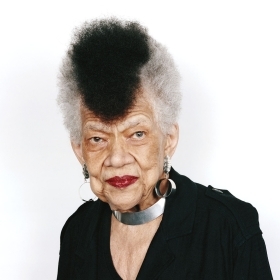Photo by Richard Howard
At the beginning of her Gender, Justice, and Health Policy Seminar (WGST 321), Charlene Galarneau, assistant professor of women’s and gender studies, divides her students into groups and hands each an orange. But it’s not a lesson in nutrition, as you might expect from a health class—she asks her students to share the orange, justly. The activity immediately leads to complicated questions, including: What is the nature of the orange as a good? What is the peel worth? Who does the work of dividing the orange, and who gets to decide how it will be divided?
If you replace the orange with our health system, the answers to those questions raised have very real consequences. Galarneau leads her students to explore what society’s responsibility is—and should be—when it comes to providing health care and promoting health.
As a college student and for years after, Galarneau explored that question while working with migrant farm workers in rural Colorado. It’s an experience that she says “awoke” her to the barriers they faced in accessing care. In addition to financial barriers, she saw a lack of cultural and linguistic competency, systemic issues such as how long a clinic was able to stay open, and flat-out prejudice.
Working on the ground led her to study the ethics of health. “What was it about our system that wasn’t changing and [was] making it hard for people to get good quality care?” she asked herself.
“I had a sense that this wasn’t just an issue of economics,” she says, but “had something to do with people’s commitments, moral commitments, obligations.”
‘What was it about our system that wasn’t changing and [was] making it hard for people to get good quality care? I had a sense that this wasn’t just an issue of economics.’
—Charlene Galarneau, assistant professor of women’s and gender studies
That framework has opened up diverse research avenues over Galarneau’s career, including the FDA’s ban on blood donations from men who have sex with men, how undocumented people access health care, and reproductive justice.
Her classes explore health in a way that touches on racism, sexism, and privilege—from water activism to transgender justice. But, she says, some of the most “contentious and exciting” conversations in her classes are around religion in public life. Those are discussions she’s well equipped to lead—her doctoral study focused on religious social ethics and health policy, a way of looking at how religious world views shape health systems and policy decisions.
Religion in the U.S. has a significant influence on public life and health policy, from access to Medicaid to birth control. However, Galarneau says, there has been an “othering” of religion, and her students commonly come into class with an assumption that religion is or can be oppressive. Through the course of these discussions, she says, they move from “discomfort to dismissal to surprise to affirmation.”
Access to health care is often debated as either a national or an individual issue. But in her recent book, Communities of Health Care Justice, Galarneau, who was recently awarded tenure, makes the case that there is an in-between. Involving diverse communities—including religious ones—in their own health decisions is “critically important,” she says.





We ask that those who engage in Wellesley magazine's online community act with honesty, integrity, and respect. (Remember the honor code, alums?) We reserve the right to remove comments by impersonators or comments that are not civil and relevant to the subject at hand. By posting here, you are permitting Wellesley magazine to edit and republish your comment in all media. Please remember that all posts are public.